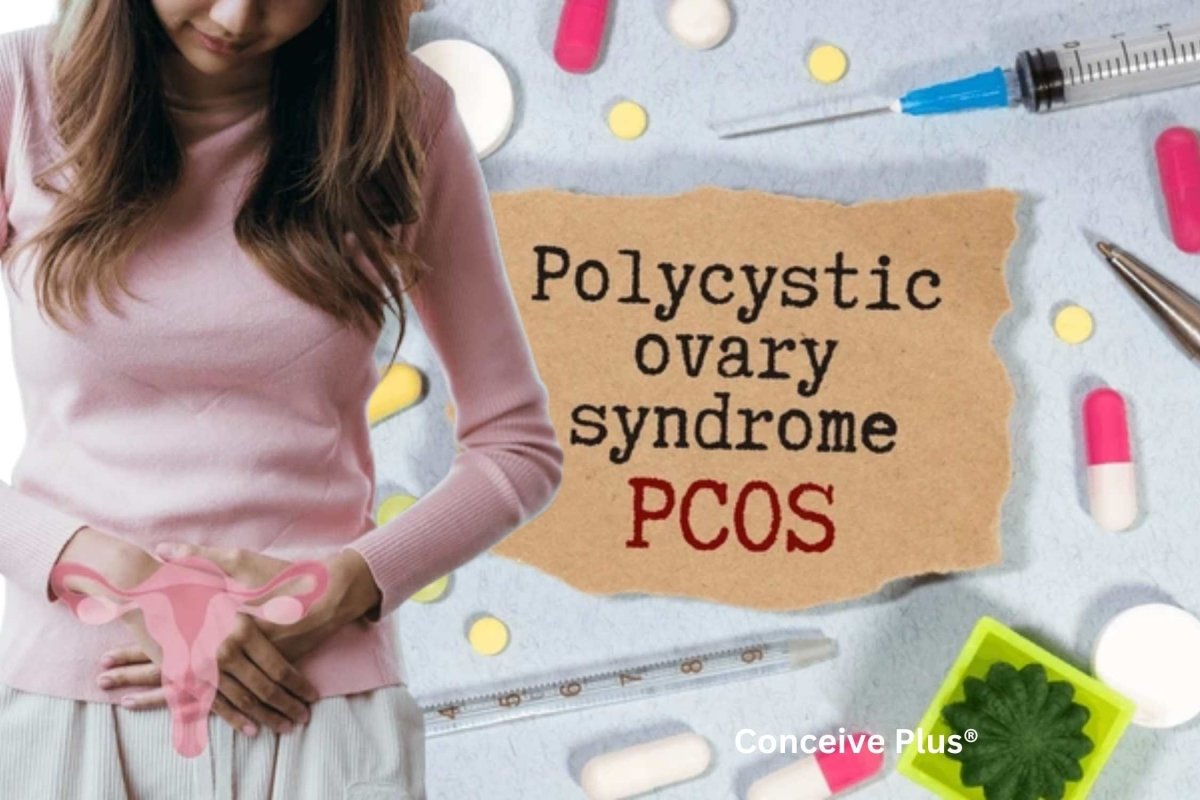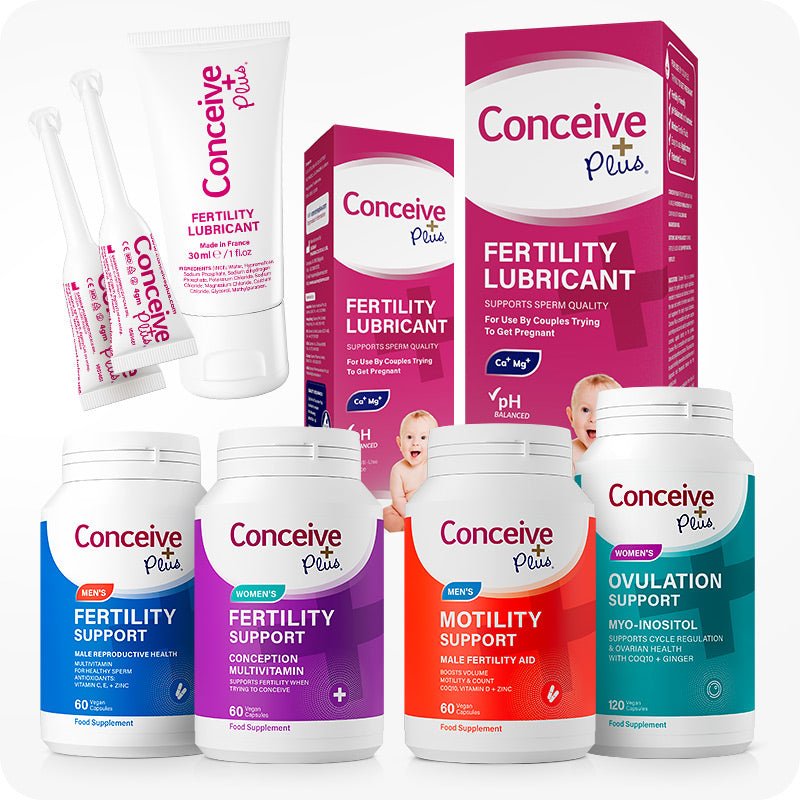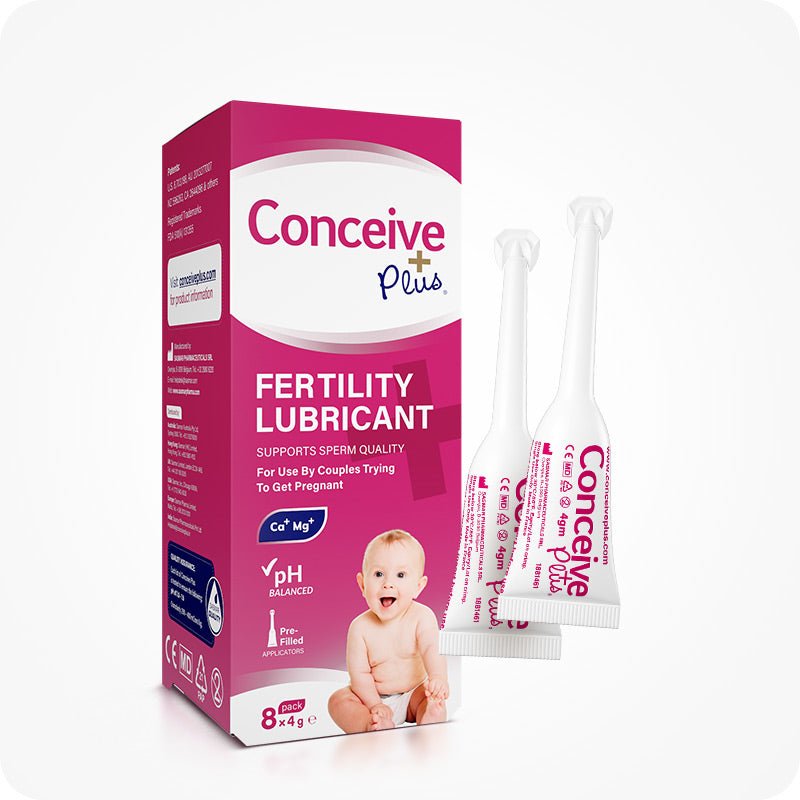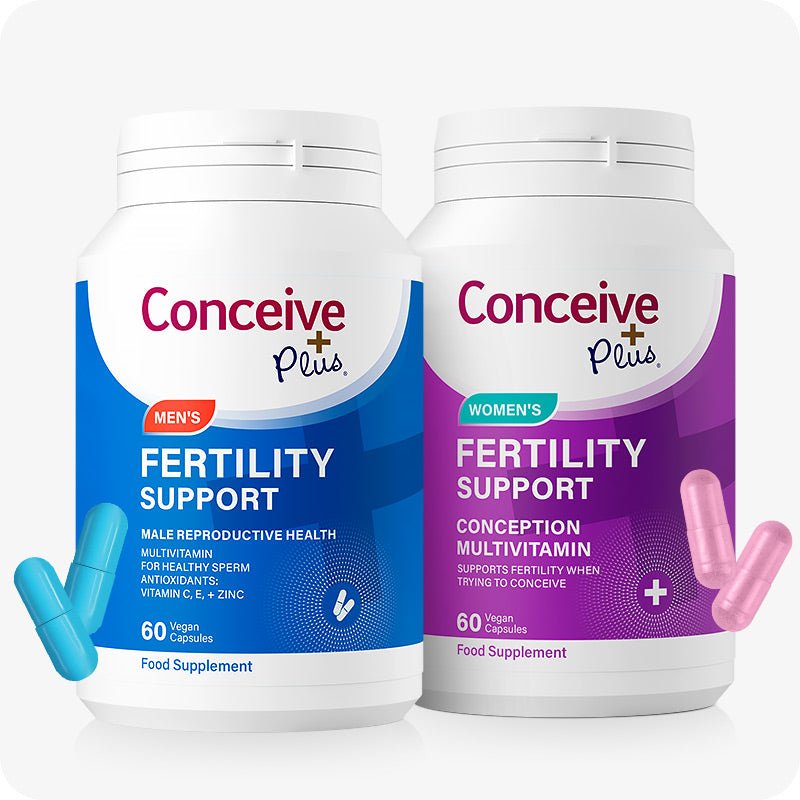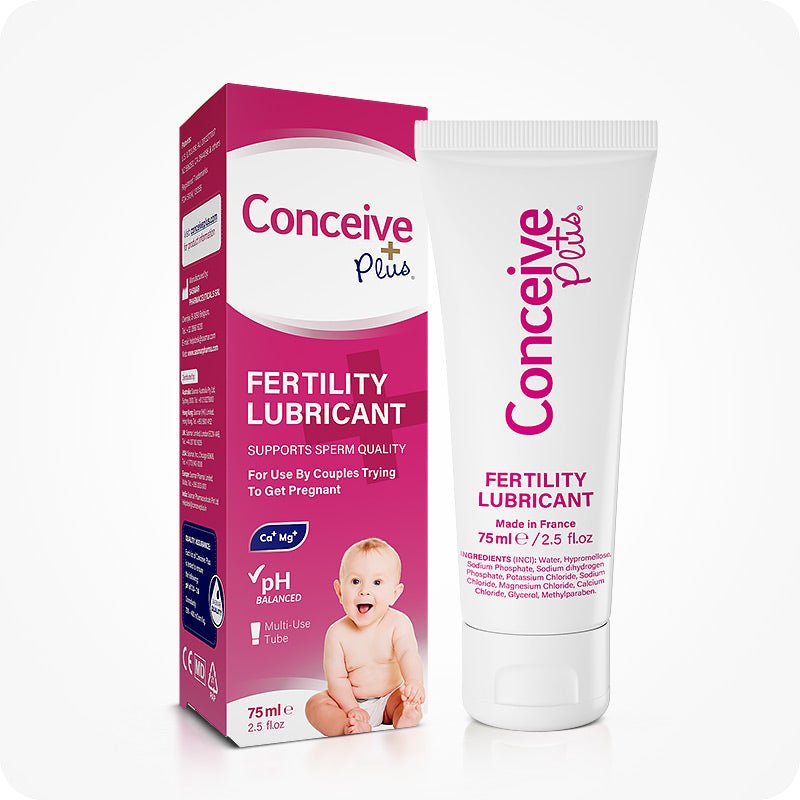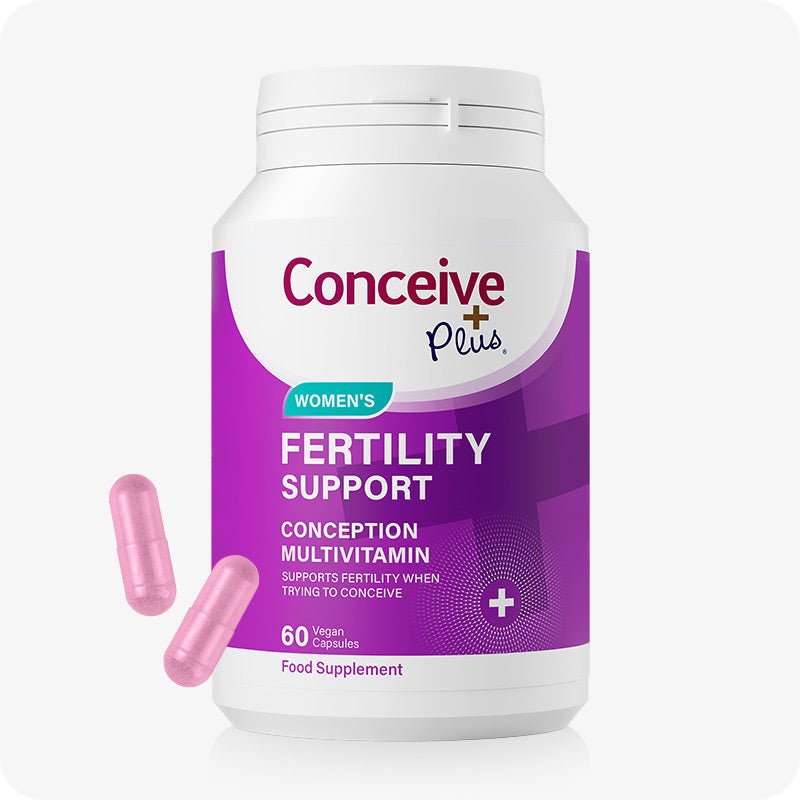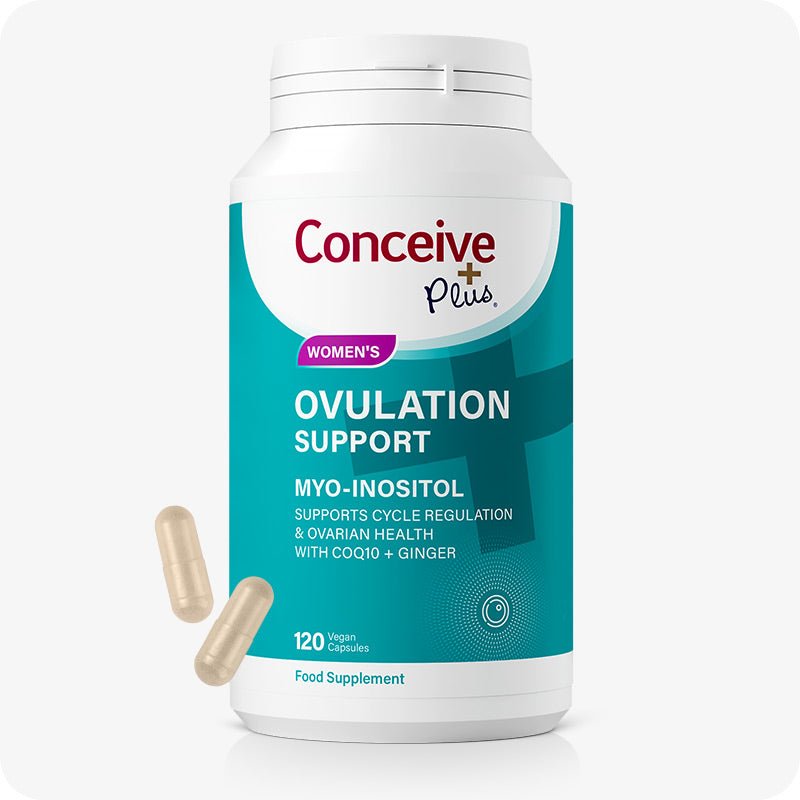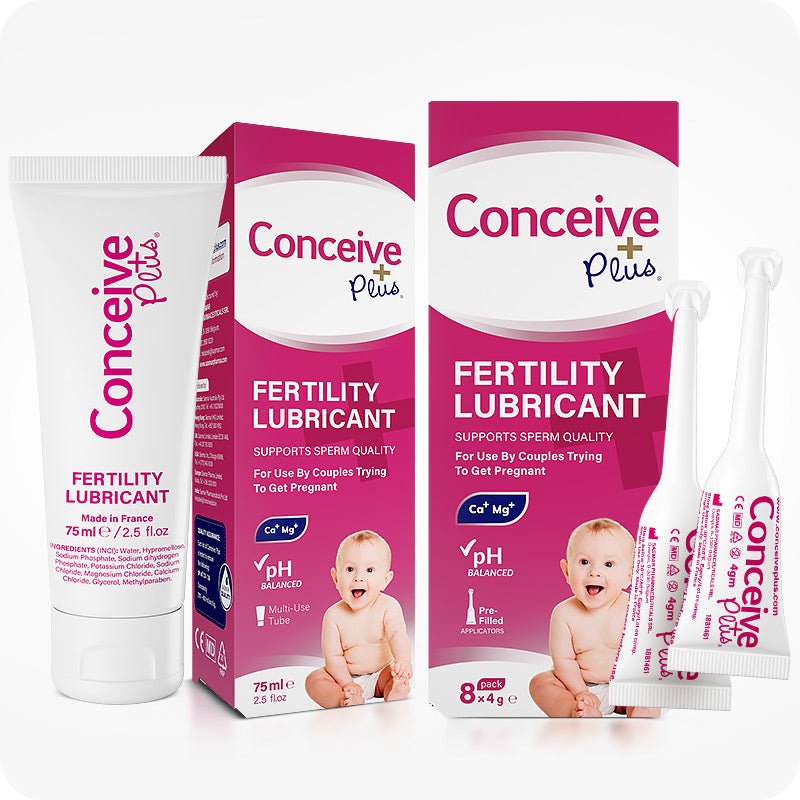Inositol Supplements: What Are They and How Do They Help
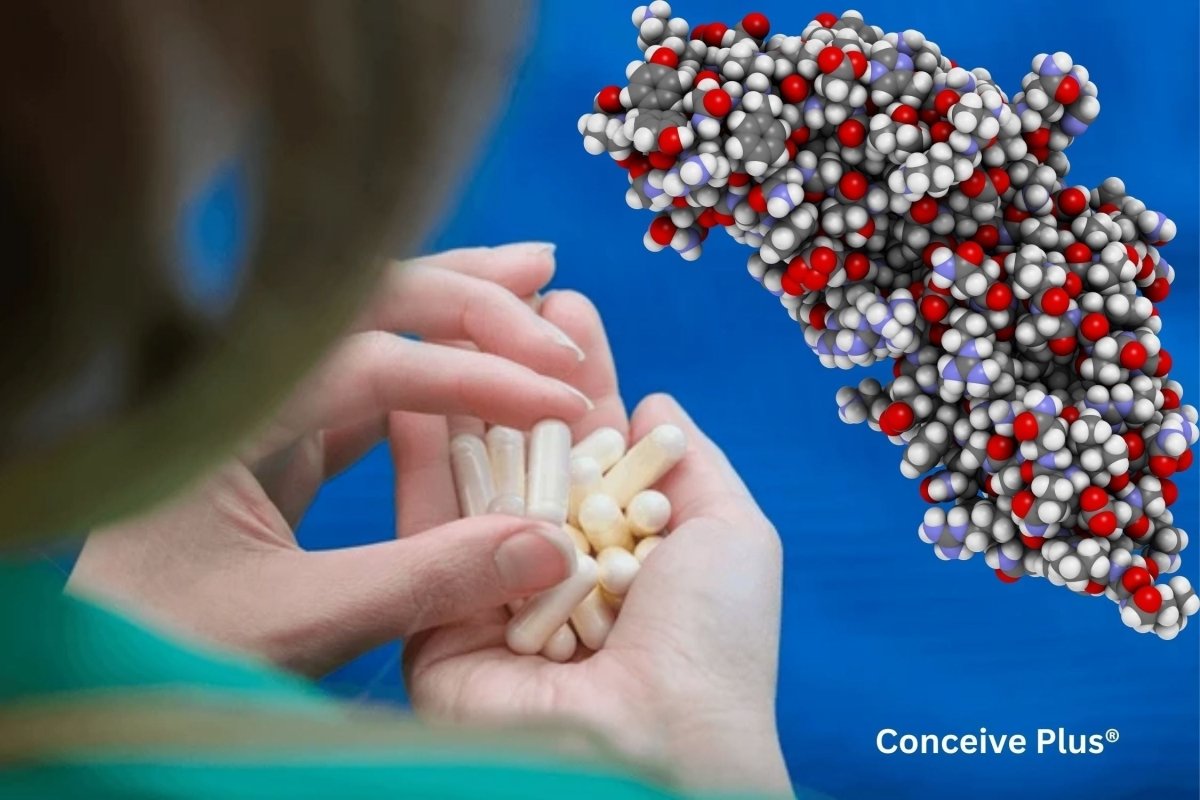
Understanding inositol can be confusing, but given its many benefits, it’s also worth learning about, especially if you suffer from PCOS, fertility issues, poor sleep, irregular ovulation, weight gain, or anxiety.
As a vitamin-like compound that the body produces, inositol is used to support several bodily functions. These include brain function, endocrine health, and insulin absorption. Some women, and men, are inositol deficient or produce abnormal amounts of inositol. In these cases, inositol supplements are recommended.
When supplemented, inositol benefits include better mental health, improved brain function, and more restful sleep. Inositol for PCOS has also proven successful, particularly when the recommended blend of Myo-inositol and D-chiro inositol is taken regularly. Recent studies on inositol and pcos highlight that a proper blend of inositol and myo inositol can significantly support hormone balance in women, offering both inositol for PCOS and improved metabolic function.
This article outlines everything you need to know about the different types of inositol and inositol benefits. How inositol helps PCOS, fertility, the endocrine system, and brain function. We also discuss the best time to take inositol and the recommended inositol blend you’ll want to look out for improving symptoms of PCOS.
Keep reading for more clarification on what is inositol and what does it do.
Inositol: What Is It?
Inositol is a naturally occurring vitamin-like compound, meaning the body produces it. We also consume inositol when eating citrus fruits, legumes, nuts, and whole grains, but unfortunately not always enough.
Although sometimes referred to as vitamin B8, inositol is more akin to a nutrient that can contribute to several bodily functions [1]. For those new to these supplements, inositol what is remains a common query—especially among consumers in the myo-inositol uk market, where pcos inositol treatments are well regarded and many also use inositol sleep aids to improve rest.
What Does Inositol Do?
Inositol plays a role in regulating cell membrane function, managing insulin sensitivity, balancing hormones, and supporting neurotransmitter activity. This essentially means that inositol supports endocrine, metabolic, and mental health [2].
Metabolism is the process of producing energy from food and the surrounding environment to power the body. Metabolic health refers to how well this process is carried out [3].
The endocrine system is responsible for producing hormones that aid in maintaining several bodily functions. Therefore, endocrine health refers to hormone balance, growth and development, moods, organ health, metabolism, and reproduction [4].
Neurotransmitters are messengers that carry chemical signals between cells and there are more than 100 types of neurotransmitters in the body. In addition to optimising how the brain functions, neurotransmitters help control the heart rate, breathing, hunger, and thirst.
They are also crucial for learning, mental health, and processing emotions like anxiety, fear, joy, and worry.
Although different forms of inositol exist, Myo and D chiro inositol are most commonly found in inositol supplements. This is because they are also the most abundant type of inositols in the body.
What Are The Different Types of Inositol
Several forms of inositol offer distinct health benefits, however, myo and d-chiro inositol are currently considered the most beneficial.
To better comprehend the benefits of myo inositol & d chiro inositol, it helps to understand that inositol has different forms and several isomers [2].
An isomer is when a compound has independent physical and chemical properties but the same molecular composition. In total, there are nine inositol isomers, which include; D-chiro-inositol, Myo-inositol, Allo-inositol Cis-inositol, Epi-inositol, L-chiro-inositol, Muco-inositol, Neo-inositol, and Scylio-inositol.
Of these, Myo inositol (MI) and D chiro inositol (DCI) are the most plentiful in the body and the most beneficial for treating endocrine, mental, and metabolic health.
For instance, an inositol supplement for PCOS and improved fertility should contain myo inositol for hormone balance as well as DCI inositol for metabolic support.
If you’ve been researching inositol, you may have also come across inositol hexaphosphate. This is another form of inositol that also has isomers and it is currently being studied for its benefits in treating cancer and reducing the side effects of chemotherapy.
Inositol supplements are also available in different forms but typically come as inositol tablets, inositol powder, or inositol pills.
What is Myo Inositol and Inositol: Are They Different?
People often wonder if a myo inositol supplement or myo inositol powder is the same as pure inositol. It’s a valid question with a somewhat confusing answer.
Effectively, inositol is also referred to as myo-inositol. Although it is also considered to be an isomer of inositol, 99% of pure inositol is myo inositol. Furthermore, D-chiro-inositol is produced from myo-inositol or pure inositol.
This interconnected relationship between myo inositol & d chiro inositol is important when it comes to using inositol for treating PCOS and it’s why most inositol supplements contain a specifically recommended blend of inositol myo and d chiro.
How Inositol Helps PCOS
Polycystic ovary syndrome (PCOS) is a reproductive disorder linked to hormone imbalances, insulin resistance, and inositol deficiencies. Due to these imbalances, women with PCOS are known to suffer from irregular menstrual cycles, ovarian dysfunction, infertility, insulin resistance, weight gain, acne, facial hair growth, and hair loss from the scalp [5].
Thanks to decades of research, inositol has been found to provide notable benefits for women looking to manage the symptoms linked to polycystic ovary syndrome (PCOS). Based on these findings, in addition to the UK, inositol is now recommended globally for treating and reducing the symptoms of PCOS.
Typically, myo inositol and what some refer to as chiro inositol (DCI) are blended for the best results in alleviating polycystic ovaries and improving ovarian function.
To treat polycystic ovaries, inositol first and foremost improves insulin resistance, which is a common issue in PCOS. Regulated insulin sensitivity, in turn, contributes to weight loss and improved hormone balance. This helps lower excessive levels of male hormones (androgens), which is another common symptom for women with PCOS [6].
Lowering androgens helps to reduce facial hair growth and prevent hair loss from the scalp, which is why inositol benefits for hair are often discussed among women with PCOS. Hormonal balance also results in more regular ovulation, which enhances fertility and improves the chances of conceiving [6].
Lastly, research also conveys that women suffering from insulin resistance, which is common in women with PCOS, can prevent gestational diabetes during pregnancy by taking a daily inositol supplement when trying to conceive. In this respect, inositol is also safe to take throughout pregnancy.
Myo inositol benefits for women with PCOS when combined with the perfect amount of D-chiro-inositol, also include improved sleep, brain function, and mental health.
What is the recommended Dose of Inositol For PCOS?
Due to the natural amounts produced by the body, the recommended dose of myo inositol in PCOS treatment is much higher than D-chiro-inositol. In this regard, research has proven that a ratio of 40:1 (MI: DCI) is most effective in reducing PCOS symptoms and improving fertility [7].
It’s wise to check that the inositol supplement you choose for treating PCOS or improving fertility contains this ratio. Taking a supplement that has ignored the ratio or mixed the blend of d-chiro-inositol and myo-inositol incorrectly could worsen symptoms.
How much inositol to take daily will depend on each case. The optimal dose of myo inositol in PCOS is a maximum of 4 g per day, but less may be recommended for some patients. Therefore, it’s best to check with your doctor or OB/GYN to ensure you are taking the correct amount of inositol supplements daily.
Choline and Inositol Benefits
Combining choline & inositol benefits women with PCOS too [8]. Choline is a nutrient naturally made in the liver but sufficient amounts are not always absorbed by the body. For most people, adequate choline is obtained through food. However, there are times when supplementing choline and inositol benefits the body.
One of these times if when you’re trying to get pregnant.
Ample choline is required for muscle control and the regulation of moods and memory, for example. However, recent findings have also concluded that choline is just as vital as folic acid for foetal brain development and the foetal nervous system [9].
Because choline also plays a role in hormone regulation, the combined choline inositol benefits for women with PCOS can translate into reduced symptoms, improved fertility, and foetal support in early pregnancy.
For more insights on how choline inositol can play a vital role in fertility, check out our in-depth guide 'Is Choline Inositol Important When Trying to Get Pregnant?'.
Inositol UK: Where Can You Buy It?
When searching for the best inositol supplement UK, ensure you purchase a brand with the perfect 40:1 blend of myo-inositol and d-chiro-inositol. Inositol Holland and Barrett brands, inositol Boots brands, and inositol Amazon brands are generally safe and trustworthy in this respect.
How to Take Inositol Correctly
In addition to the perfect blend of 40:1 myo inositol and d chiro inositol, inositol dosage is vital when seeking to improve fertility and reduce symptoms of PCOS. How much inositol per day you are advised to take will determine how many supplements you take.
So before purchasing myo inositol UK or stateside, speak first with your doctor or OB/GYN to understand the correct dose for your needs.
Holland and Barrett inositol brands, in addition to those from Boots and Amazon, are often clinically proven and many come with recommendations from fertility experts or female health experts.
When To Take Inositol For PCOS?
According to research, the best time to take inositol for relief from symptoms of PCOS is once in the morning and once in the evening [10]. Because a maximum dose of 4 g is recommended daily, this would mean 2 g in the morning and 2 g in the evening.
Inositol Benefits for Men
Even though this article is mainly focused on inositol benefits for women, inositol for men, and people who don’t have PCOS, also has its benefits. Due to its positive effects on brain function, studies have shown that inositol may help treat depression, bipolar disorder, and panic attacks.
Solgar inositol, for instance, is formulated to support brain health, memory, and nerve function. By improving neurotransmitter activity, inositol Solgar, and other inositol brands, can reduce feelings of anxiety, calm the mind, and boost more joyful moods.
Inositol and sleep have a connection too. By improving neurotransmitter activity and relaxing the mind, inositol can help people to sleep better. This is why inositol, sleep, and mental health are often connected.
Men, or women, struggling with weight gain can also benefit from daily inositol for weight loss.
How Does Inositol Help With Weight Loss?
When taking regular inositol, weight loss can occur due to the improved metabolism of glucose. One of the key benefits of inositol is that it improves insulin sensitivity by helping the body to process, store, and use glucose more effectively. Therefore, inositol and weight loss are often connected. In addition, research into inositol weight loss has shown that combining inositol myo inositol in supplement formulations can aid individuals seeking a healthier metabolism and overall weight management.
That said, just by taking regular inositol, losing weight is not guaranteed. Although it helps metabolise glucose and improve insulin resistance, you’ll see the best results by combining an inositol supplement with a well-balanced diet and regular exercise.
As a health precaution, it’s always best to check with your doctor regarding inositol, losing weight, and your personal situation. Moreover, studies suggest that individuals focused on inositol losing weight often integrate inositol to lose weight strategies with diet and exercise, thus maximizing the benefits myo inositol can provide in managing PCOS, as observed in inositol pcos uk protocols.
Inositol Side Effects: Are There Any?
When it comes to side effects, inositol does not raise any grave concerns. Given that inositol is naturally produced by the body, side effects of myo inositol and d-chiro inositol are non existent for most and minimal for a small percentage of people.
Research revealed mild side effects occurred for some but only after 12 g or more doses were taken. Myo-inositol side effects, when more than 12 g is taken, may include dizziness, gas, mild headaches or nausea, difficulty sleeping, or fatigue. While myo inositol side effects are generally mild, reported side effects inositol are rare when sticking to the recommended doses, ensuring safety for most users.
The good news is that pregnant women, and those trying to conceive with PCOS, have safely taken up to 4 g of inositol daily without any adverse side effects. Studies also suggest that inositol can be safely taken for up to a year when side effects are not an issue.
If you're curious about how long does it take for myo-inositol to regulate period, our detailed guide breaks down the timeline and benefits for achieving a more regular menstrual cycle.
The Bottom Line
Myo-inositol supplements, blended with the perfect amount of inositol D-chiro, are a powerful combination that benefits women with PCOS. Those hoping to get pregnant can also reap the Myo-inositol benefits of enhanced ovarian function and better-quality eggs.
On top of myo inositol PCOS management, the benefits of inositol extend to weight loss, hair care, skin care, better sleep, improved mental health, and enhanced brain function.
If you’re interested in experiencing these benefits, myo inositol supplements UK are widely available from trusted pharmacies both online and retail.
References
- Science Direct - Inositol - https://www.sciencedirect.com/topics/neuroscience/inositol
- National Library of Medicine - Role of Inositols and Inositol Phosphates in Energy Metabolism - https://www.ncbi.nlm.nih.gov/pmc/articles/PMC7663797/
- Bupa - Metabolic Health - https://www.bupa.co.uk/newsroom/ourviews/metabolic-health\
- Cleveland Clinic - Endocrine System - https://my.clevelandclinic.org/health/body/21201-endocrine-system
- NHS - Polycystic Ovary Syndrome (PCOS) - https://www.nhs.uk/conditions/polycystic-ovary-syndrome-pcos/
- National Library of Medicine - The inositols and polycystic ovary syndrome - https://www.ncbi.nlm.nih.gov/pmc/articles/PMC5040057/
- National Library of Medicine - The 40:1 myo-inositol/D-chiro-inositol plasma ratio is able to restore ovulation in PCOS patients: comparison with other ratios - https://pubmed.ncbi.nlm.nih.gov/31298405/
- National Library of Medicine - Choline supplementation influences ovarian follicular development - https://pubmed.ncbi.nlm.nih.gov/34994167/
- National Library of Medicine - Prenatal Folate and Choline Levels and Brain and Cognitive Development in Children: A Critical Narrative Review - https://www.ncbi.nlm.nih.gov/pmc/articles/PMC8778665/
- Institute of Medical Physics - When Is The Best Time to Take Inositol for PCOS? - https://www.medicalphysics.institute/papers/when-is-the-best-time-to-take-inositol-for-pcos








